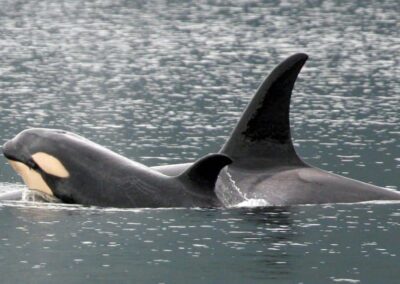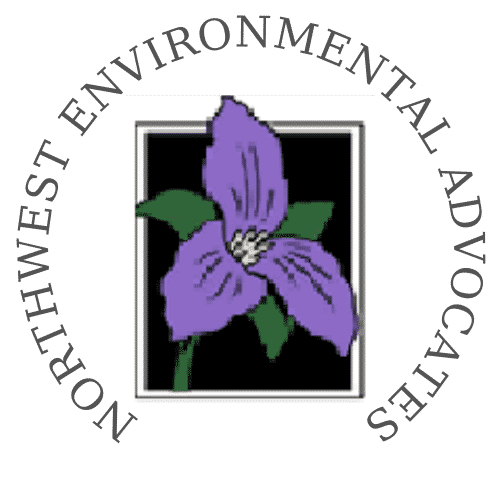News
Stay Informed
Upcoming Actions
Puget Sound Nutrient Pollution and Algae Blooms
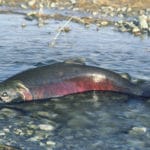
The Problem
Nutrient pollution is known worldwide for causing vast blooms of algae and “dead zones” where fish and shellfish cannot breathe. In Puget Sound, nitrogen discharged from over 100 sewage treatment plants is sucking the oxygen out of the water, causing massive algae blooms, increases in Puget Sound jellyfish, and changes in the Puget Sound food web. The Washington Department of Ecology predicts that with population increases and climate change impacts, the problem will only get worse in future years. Meanwhile, Ecology continues to photograph algal blooms across Puget Sound in a rainbow of colors.
What is happening in the waters of Puget Sound is one part of the problem. The other part is Ecology’s refusal to stop the problem by regulating the discharge of nitrogen. The federal Clean Water Act requires Ecology to include pollution limits in discharge permits but not only has Ecology failed to do this, it is openly planning on continuing to flout the law by issuing a blanket permit allowing these illegal discharges. Ecology also has no plan to control sources of nitrogen pollution that comes from nonpoint sources such as septic tanks (not designed to remove nitrogen), and polluted runoff from farmland and logging.
• NWEA relies on federal and state laws to target nutrient pollution in Puget Sound from sources with permits, such as sewage treatment plants, and from polluted runoff. In recent years, we have:
• Sued Washington for issuing discharge permits to Puget Sound sewage treatment plants that fail to meet Washington’s law that requires modern sewage treatment.
• Petitioned Ecology to develop a pollution diet or “TMDL” for nitrogen in Puget Sound that would establish the actions that pollution sources need to take to restore the Sound to health, including reduction of nitrogen that is fueling the growth of algae.
• Advocated for Ecology’s proposed Puget Sound Nutrient General Permit to meet the requirements of the Clean Water Act, including reductions on nitrogen discharges from sewage treatment plants.
• Settled a lawsuit that requires Ecology to establish best management practices for farmland, including to keep nutrient pollution out of Puget Sound waters.

What You Can Do
• Sign up for NWEA Action Alerts
• Sign up for Ecology emails
• Connect your friends and family to the issue via social media
• Become a member of NWEA—with or without a financial contribution
Washington and federal agencies will propose significant actions over the coming year—actions that are guaranteed to fall well short of protecting Puget Sound. These agencies invite public comment, creating an opportunity for you to add your voice to the demand for change. Too often, agency actions are shaped to benefit special interests, not the public interest. That needs to stop. A growing population and climate change bring even more urgency to the longstanding need for strong regulatory actions to protect Puget Sound, its marine life, and its beaches. Here are some key opportunities to be heard:
Action Needed Now!
Washington Ecology: Mandate Modern Sewage Treatment for Puget Sound
After 20 years plus of foot–dragging, Ecology plans to allow 58 sewage treatment plants to keep discharging at current levels instead of making them reduce the amount of pollution they dump in Puget Sound.
In other words, Washington is not following the law and not protecting Puget Sound. Join with us to stop Washington’s business-as-usual approach to Puget Sound and help save the Chinook salmon and Puget Sound’s resident orcas.
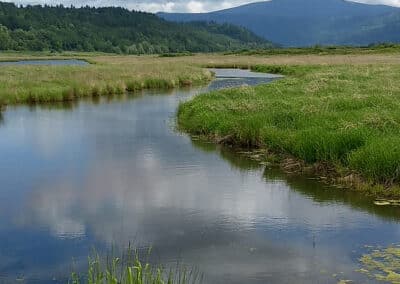
Court Wins for Puget Sound & Columbia River
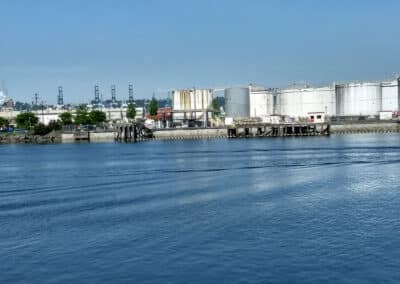
Stopping Tacoma from Harming Puget Sound Chinook Salmon
